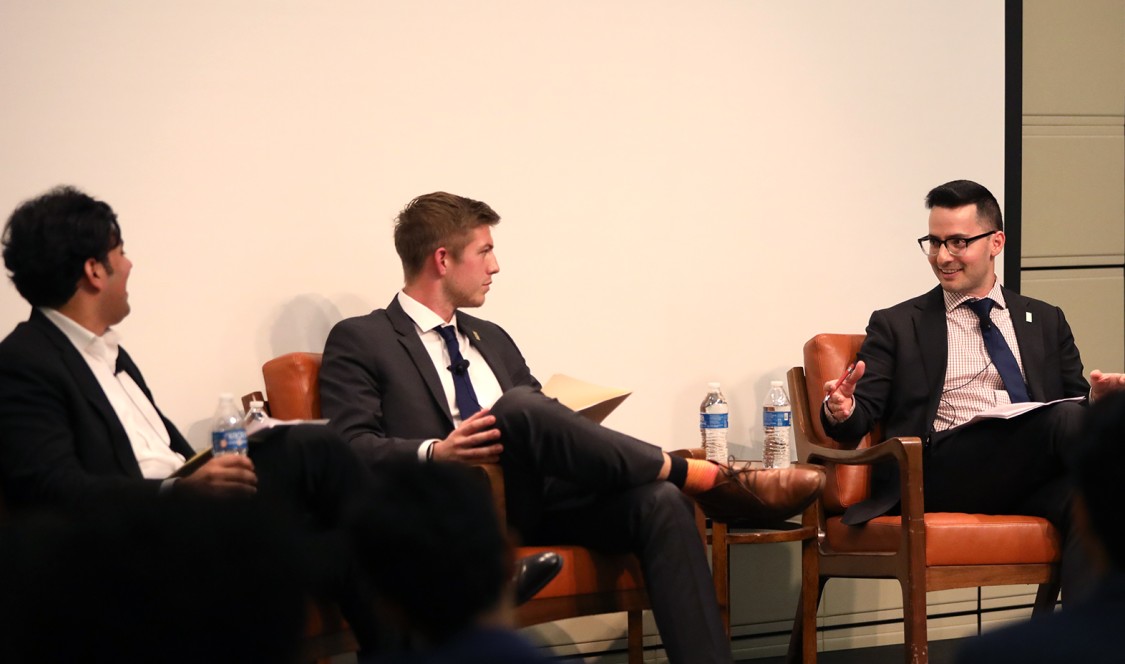The odds appeared to be stacked against law professor Ilan Wurman ’09 from the start. In a poll taken just prior to the October 13 Athenaeum debate with attorney Aditya Pai ‘13 on whether the Electoral College should be abolished, 67% of the audience indicated that they already believed that it should. Co-sponsored by the Dreier Roundtable, whose mission is to inspire public service with support from CMC’s Rose Institute of State and Local Government, the evening promised a lively dialogue on how presidents are selected in the United States. And it delivered.
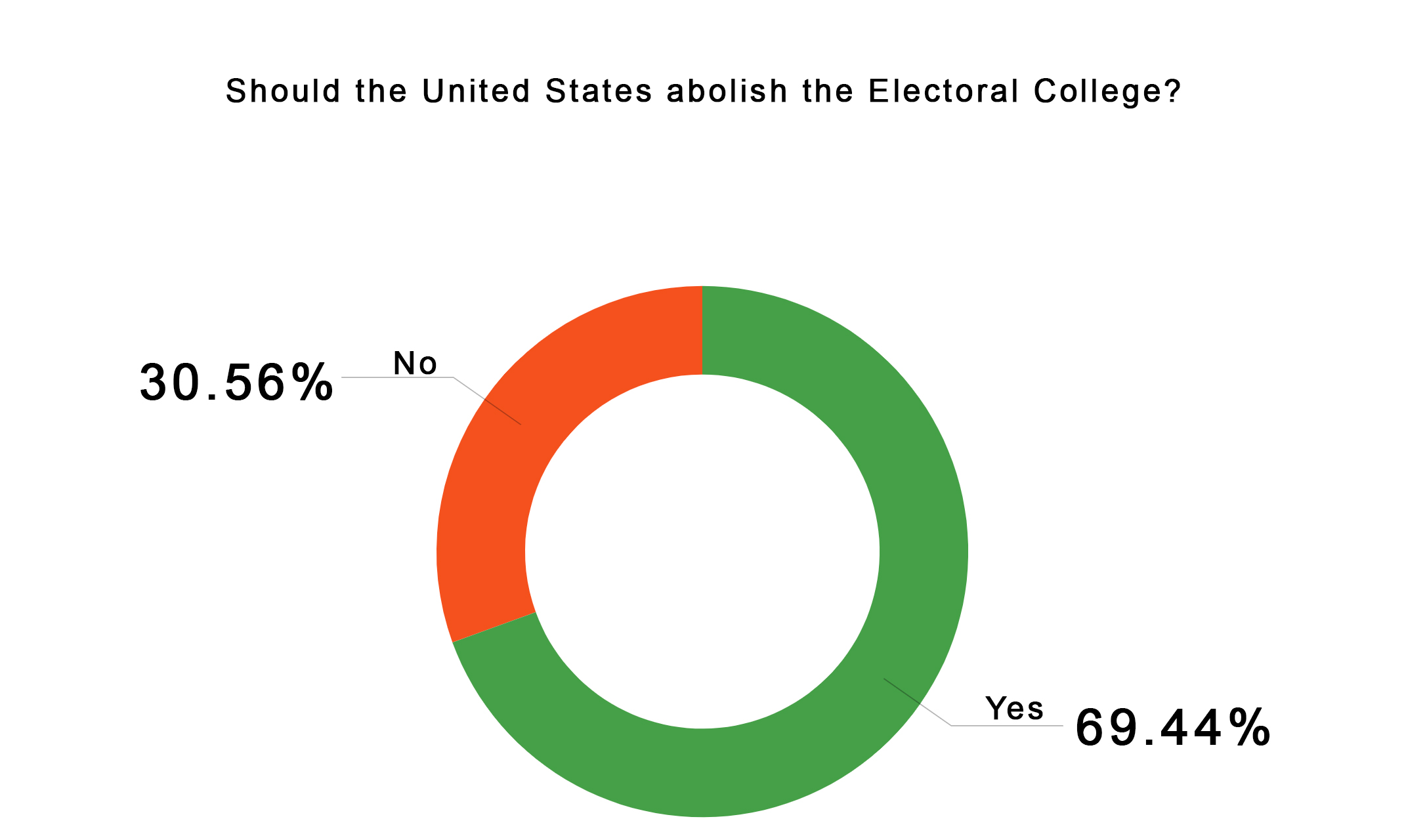
In her introduction, Athenaeum Fellow Rukmini Banerjee ‘24 reviewed the origins of the Electoral College, a compromise between the nation’s founders, some of whom wanted to use a popular vote system, others believing Congress should select the president. They settled on a system of appointing electors for the states, whose numbers would equal the elected senators and representatives of each state, resulting in today’s 538-member Electoral College.
Banerjee also outlined the debaters’ bona fides, both of whom were active at the Rose Institute during their time at CMC. Wurman, a Stanford Law School graduate, teaches administrative law and constitutional law at Arizona State University. He writes primarily on the Fourteenth Amendment, administrative law, separation of powers, and constitutionalism. Pai, a Harvard Law School graduate, was most recently a trial attorney at Rutan & Tucker, where he represented owners, general contractors, and subcontractors in the construction industry as well as nonprofits.
Nohl Patterson ’22, also a Rose Institute alumnus, moderated the modified Oxford-style format and outlined the rules. He also pointed out that the contest could be billed as a “grudge match,” since the pair had debated on the same stage more than a decade earlier, albeit on a different subject.
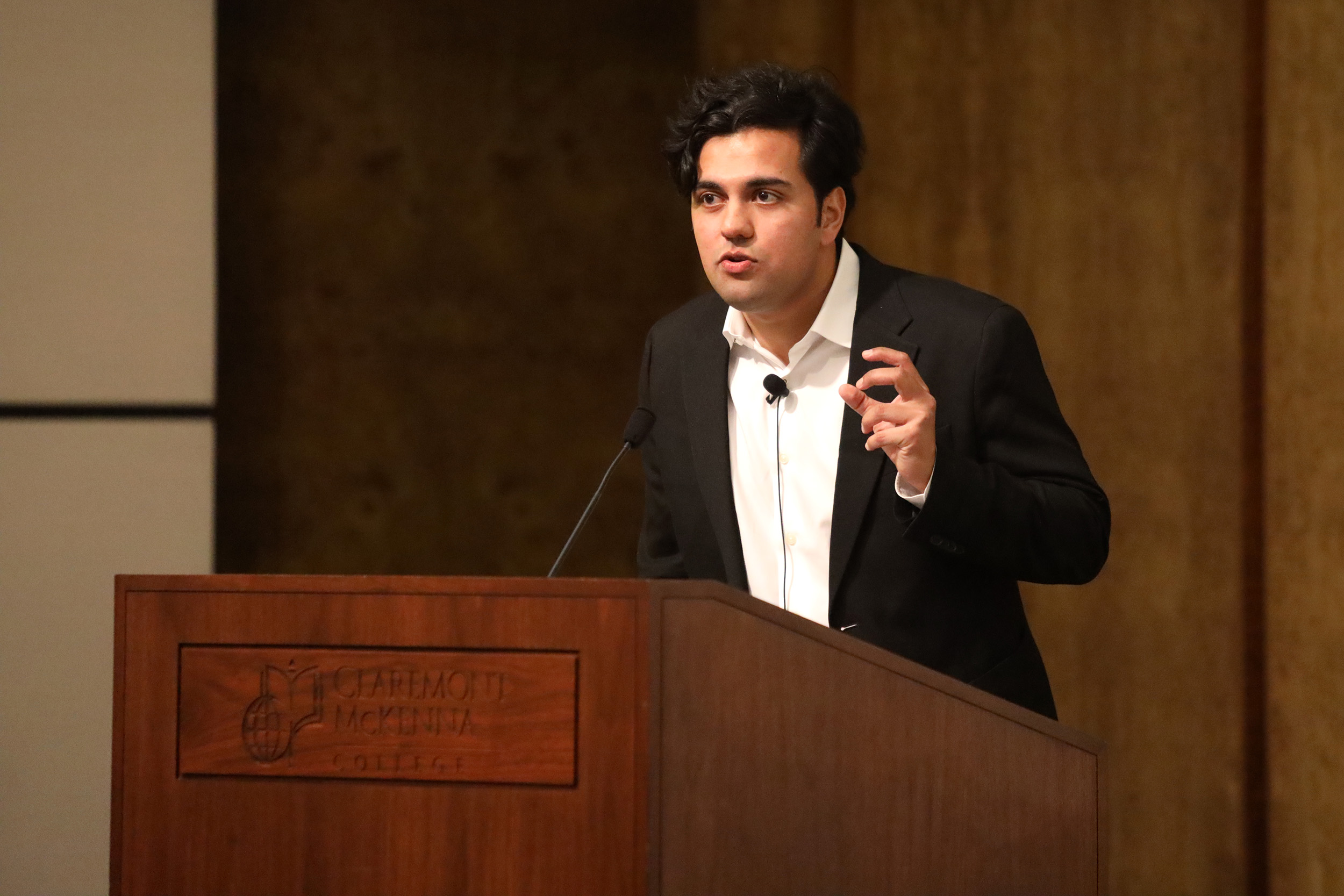
Pai, a self-professed high-school debater, got in the slot first, arguing that the Electoral College should be abolished.
He started broadly, with a historic definition of the role of the presidency based on President Lyndon B. Johnson’s doctrine. “What is the presidency for?” asked Johnson in 1963 when his advisors tried to dissuade him from taking a stand on civil rights, so as not to antagonize the Southern senators. The presidency is for the country, not for the states in Johnson’s view, and Pai’s line of reasoning echoed that notion.
“I’ve got three arguments,” he said, “and I’m going to press them again and again on Ilan, using them as both a shield and a sword.” All his arguments, he said, would support why he believes that it “makes very little sense to elect the president through a mediated process that goes through the states.”
First, said Pai, “we need one leader of one people,” which he suggested should be elected by those people. “I would argue…that what this country needs—and wants, is a president to galvanize its mood and mindset…We don’t think as Californians…or Texans…or Pennsylvanians—we think and more importantly we feel, as Americans.”
Secondly, he argued that states already have sufficient representation at various levels of government.
“The following people—governors, senators, federal district judges, federal appellate judges and United States attorneys already bring and reflect state values, state perspectives, and state interests in the federal government,” he argued.
His third argument was that states already have an enormous role in the presidential selection process through the nominating process and state primaries.
Wurman took the podium next to defend the existing electoral system, joking that he had never been a high school debater, “or even a middle school or preschool debater” but that he had “truth on his side.” (Not to mention his experience teaching law.) And he seemed undeterred that most of the audience had already professed their disagreement with his point of view.
He argued that the origins of the Electoral College were not undemocratic but “practical” given the electorate of the day. (Northern states were more populous, and southern delegates to the Constitutional Convention worried, with much of their population held as slaves, that they would be unevenly represented in a presidential election.)
“How do you have a national popular vote for president when the proportion of each states’ populations that’s eligible to vote varies from state to state? The Electoral College is the obvious solution,” Wurman said.
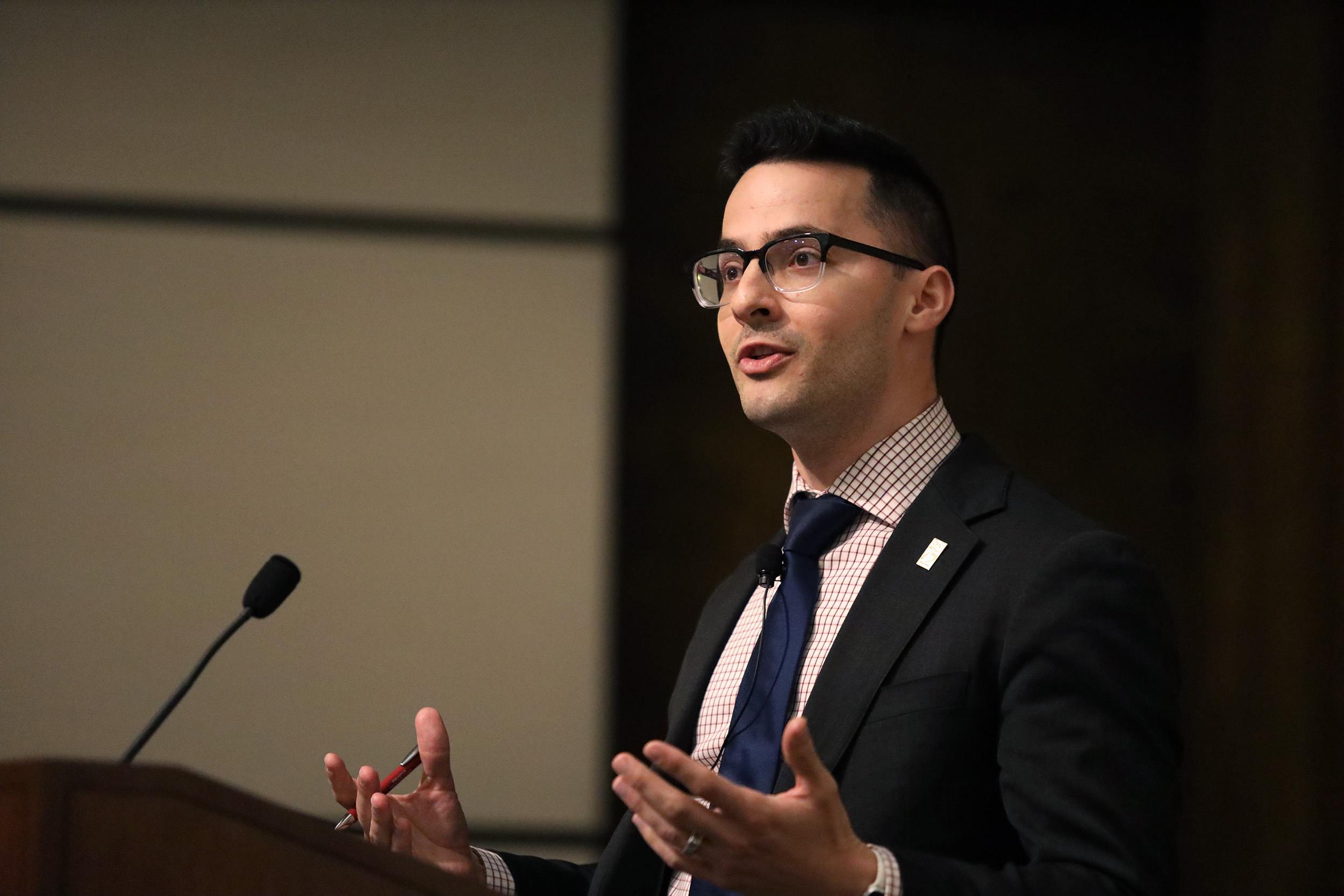
Wurman also challenged the notion that the founders’ adoption of a system that used independent electors to select the president was intended to be a “check on the will of the American people,” noting that the system has worked well over the centuries.
“This so called ‘faithless elector’ problem (when states’ electors vote differently from how they pledged to) has never been a problem – in all American history! From the beginning not once did presidential electors ever thwart the will of the people. So, if it was intended to be anti-democratic," he offered, “it just hasn’t worked out that way.”
Wurman also pointed out the distributed system of the Electoral College is robust and reduces the potential for fraud.
“Now imagine a national popular vote…every single vote in every state and every county and every city and precinct now count for the total incidence of human error, every single act of fraud – and now has the potential to tip a national election—and a national recount? What a nightmare!”
"If you remember one thing," Wurman charged the audience: “it’s that the Electoral College simply means that the president is selected in a series of democratic contests in a series of states.”
Wurman said it pleased him that a president didn’t have to win millions of votes just in big cities like New York, Chicago, and Los Angeles but instead was required to represent the entire nation by winning votes “in different regions of the country, with different cultures and different communities of interests.”
“That’s what federalism does—it protects and maximizes local preferences; it protects minorities that might otherwise be oppressed by faraway majorities and localism. Minority rights have always been an important feature of American democracy…for the sake of the common good of this country,” Wurman continued.
The two engaged and parried in a rebuttal stage, where Pai told the audience that with regard to the Electoral College the U.S. has “zero obligation, moral, legal, political, or constitutional" to follow the founders' views…"that’s why they left us an amendment process,” and Wurman allowed that the Electoral College system is “remarkably versatile.” He said could imagine altering its current “winner takes all” feature, which he called “not baked in.”
Informed questions from several students evoked discussions about swing states, election security, and why presidential votes cast in small states like Wyoming should count more than those in California.
Pai got the chance for one more point.
“I would say [the Electoral College] is actually un-American…no matter how much money you have, how good-looking you are, how smart you are, who your daddy is – the idea of this country is that we are all political equals.”
A post-debate poll showed that almost no one had been swayed to change their minds. (However it's also possible that an equal number of those polled switched positions.)
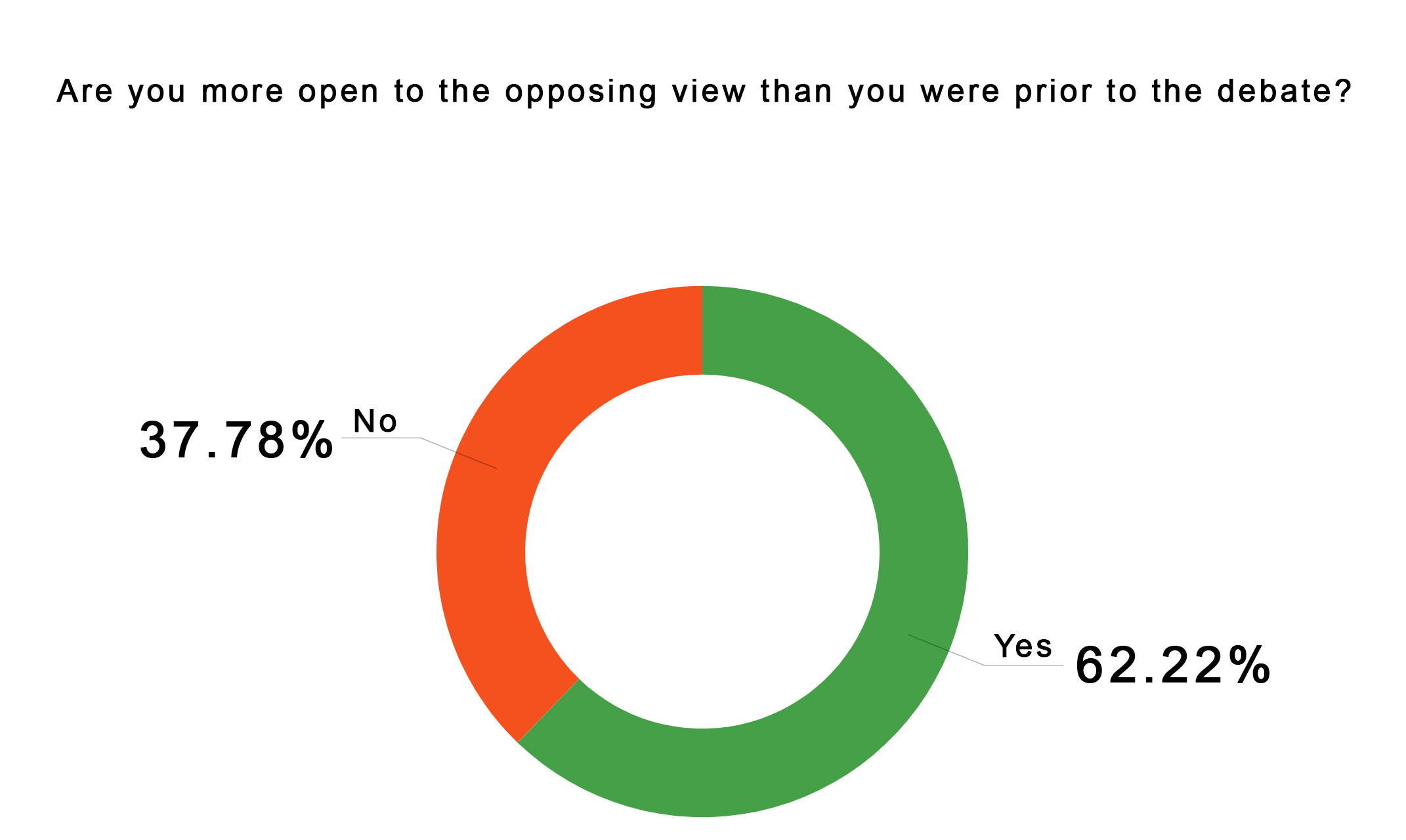
Yet a third poll, addressing whether participants were more open to the opposing view than they were prior to the debate seemed to indicate some movement, with 62% of participants more open to the opposing view than they were prior to the debate. So, though minds may not have been changed, audience members appeared to respond to some of what they had learned.
Though Wurman was technically the loser, he was encouraged, and cheerful. “Just remember,” he said, “All it takes is one good college class for you to change your mind.”

